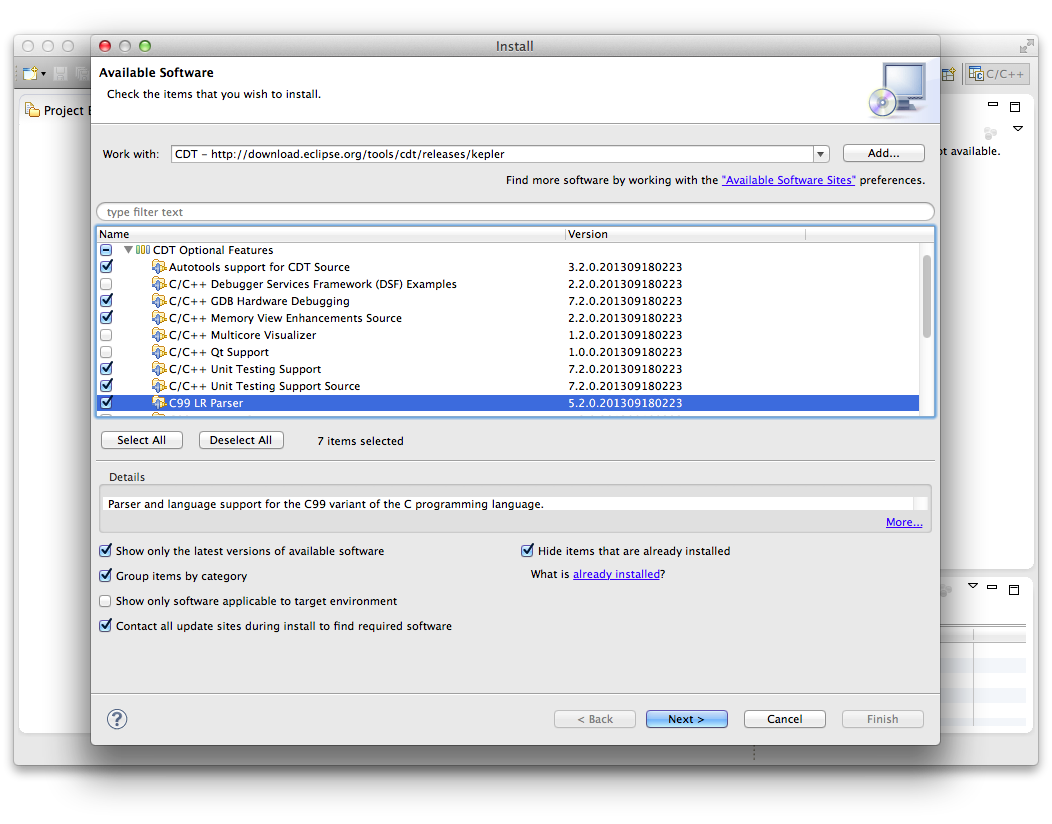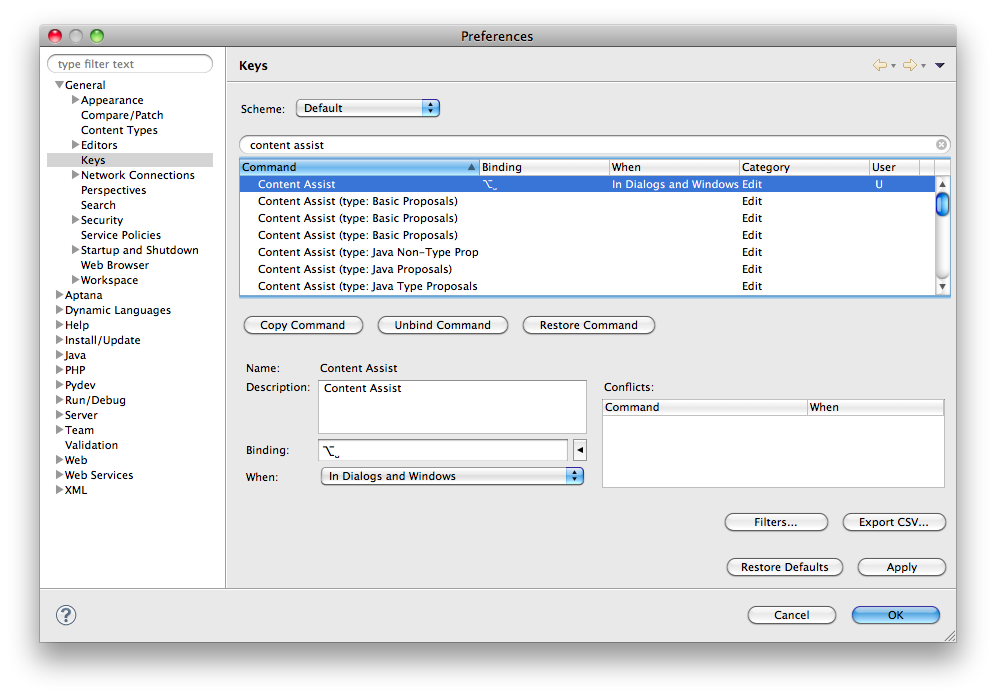

We're going to be calling Ceedling, like so: ~/.rvm/gems/ruby-2.0.0-p643/gems/ceedling-0.19.0/bin/ceedling (or whereever your copy of ceedling is). The Main tab of your new configuration allows you to enter the location of your C/C++ application. On the navigation tree, select C/C++ Unit and Add a new configuration. Long-Click the Run As button and select Run Configurations. Let's start by adding the default option. To do this, we want to tell our IDE that we want to use some Run As Configurations to use with ceedling and what targets are available. Next we want to actually trigger tests from the IDE. This last step will keep it from making too many incorrect assumptions about how we want to work.

This will help your project automatically index its files. For Toolchain For Indexer Settings, select any local gcc version that builds natively. In the Existing Code Location field, enter or browse to the folder containing your Ceedling-Managed project. Expland the section for C/C++ and select Makefile Project with Existing Code. Select New Project (either from the New menu or by right-clicking the Project Explorer and selecting Add Project.). There is no reason that it has to be in the "Workspace" directory of Eclipse.

You can create a new project or work with an existing project that is managed by Ceedling.
#Eclipse cdt for mac install#
You can do this by going to Install New Software, enter unit in the filter box and select C/C++ unit testing support. Then you will also want to install the optional CDT Unit Testing Framework. First, make sure you have CDT (The C/C++ Development Toolkit) installed in Eclipse. We will be making use of Eclipse's optional C/C++ Unit Testing support.
#Eclipse cdt for mac update#
You may need to update your Java environment if it's behind (If you're on a Mac and it's complaining about your version of Java despite having a newer version, you'll want to install the latest 64-bit JDK and Eclipse will stop complaining.).


 0 kommentar(er)
0 kommentar(er)
